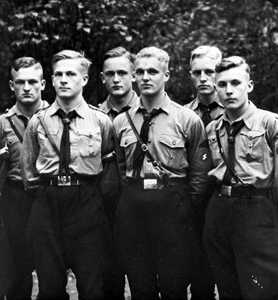anon_nila said in #1309 2y ago:
For the everyman, this might be true, since one can observe the “cool-factor” playing out in almost every fad.
But among our elite, can this actually be said to be the case? There’s much to be said about the artistic and literary tastes of these people, and much has been said, but I’d like to focus on what is, to me, a more curious case: our mathematicians.
I cannot find a survey of mathematicians themselves, but if we take tenure-track/permanent philosophy of mathematics faculty as a proxy, 60% report themselves as Platonists. https://philpapers.org/surveys/results.pl?affil=Target+faculty&areas0=47&areas_max=1&grain=coarse
Academia skews liberal, but those who have interacted in any online mathematics community (say Twitter, mathstodon) will know that mathematicians skew far further left than that.
Mathematics is a subject that tends to attract what we might describe as “sensitive young men and women.” We cannot deny that a student in mathematics is reasonably intelligent, certainly more intelligent than the everyman. This is the sort of biomaterial that most dissidents seek to sway or at least instrumentalize.
Avowing mathematical Platonism (and objective theories of aesthetics, and deontological ethics — it’s a fun survey to scroll) while indulging in various Marxisms, transgenderism, atheisms, social libertinisms, and etceterisms, seems to be a piece of evidence against the primacy of aesthetic considerations.
This puzzle is most often explained away by the “theory of theorycels,” i.e. those who live, work, and okay with abstractions in a land where logical consistency is the only law are susceptible to all kind of ideologies. The theorycel adopts the ideology for its internal consistency (perhaps an aesthetic judgment?) and turns a blind eye to downstream ugliness.
This is a difficult explanation to buy on its own. Empirically, these people desire the society implied by the ideology (or they lie everywhere all the time online), which means they seek an accordance between their abstraction and their social reality. I find it unreasonable to expect that there is some sort of duality of aesthetic judgments at play, so it stands to reason this people do not find such a social outcomes ugly.
In any case, we’re left with a problem. If consistency is all that matters, then there is no reason to expect that a propaganda focused on beauty will sway. If consistency is not all that matters, then the social outcomes are not considered ugly, and so the audience is aesthetically unreachable, or the social outcomes are considered ugly but otherwise desirable, and so there is no primacy of aesthetics.
If we can accept that philosophers of mathematics are a proxy for mathematicians and that mathematicians in turn are a proxy for the untapped SYM demographic, then it seems that focusing on aesthetics is a misguided way to create converts.
Of course, this might not be the target demographic. But right now, aesthetic propaganda seems to win over young men of middling intellect who purchase supplements from grifters.
referenced by: >>1312
A common theme I see
